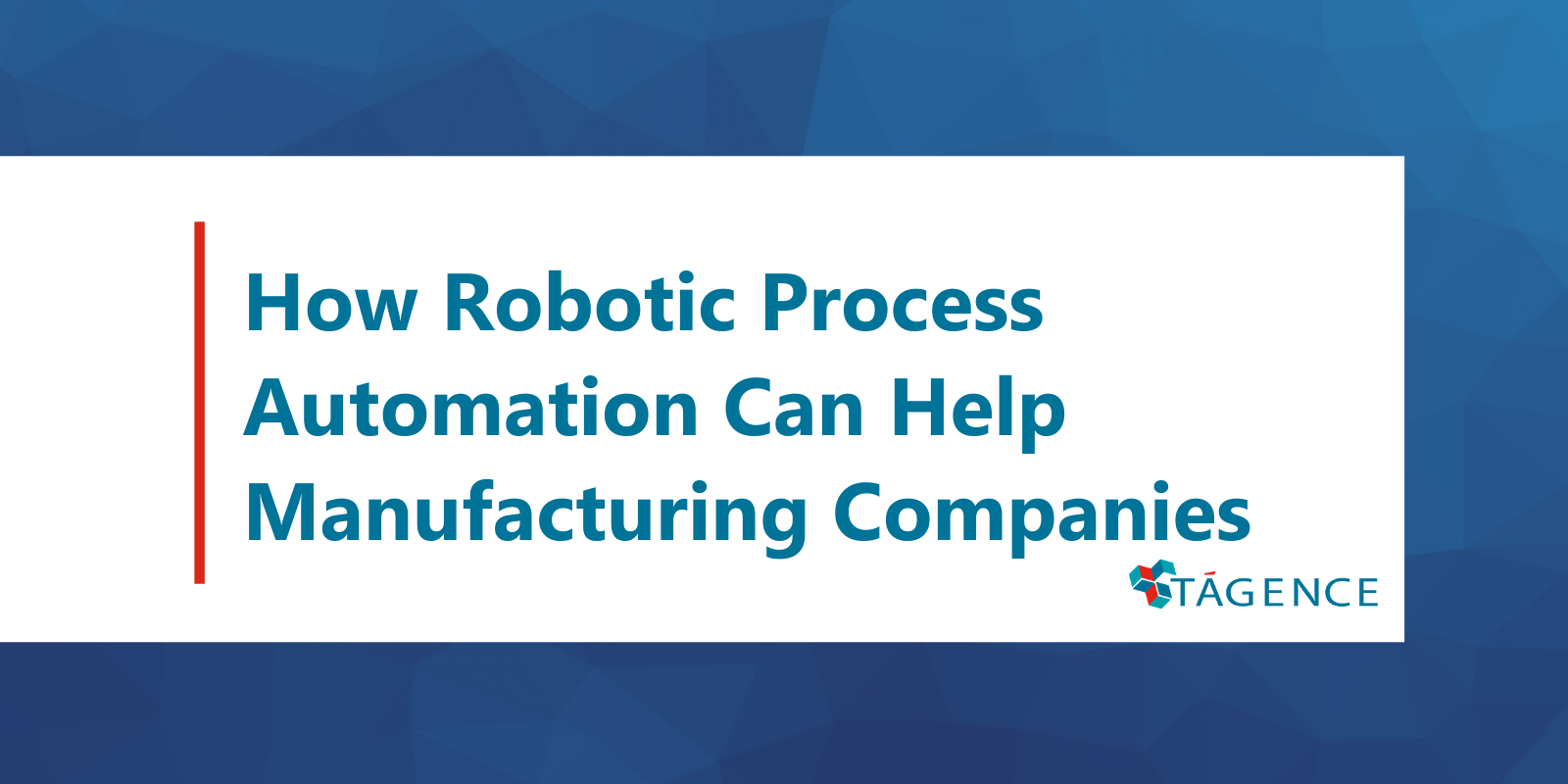
RPA and Manufacturing: How Automation Helps Increase Efficiency and Profit
Manufacturing companies are more adversely affected during the pandemic as most of the COVID-19 restrictions negatively influence the production process. There is hope on the horizon, however, and it comes in the form of robotic process automation, or RPA, for manufacturing companies.

Robotic process automation is one of the most promising software strategies to maintain, and even increase, manufacturer revenue and efficiency during the pandemic.
This article on RPA and manufacturing will cover:
● Tasks that RPA can assist with at your manufacturing business
● How RPA is redefining the manufacturing industry
Tasks That RPA Can Assist With At Your Manufacturing Business
1. RPA Streamlines Inventory Management
One of the essential manufacturing processes is stock handling.
It’s essential to know what you have on hand at any business, that’s why it’s surprising that 43% of small businesses do not have an inventory management system in place or use a manual process. This traditional approach involves a lot of paperwork and can be inaccurate.
Using unreliable information takes time away from the actual manufacturing process and increases the chances for producing faulty products.
Implementing robotic process automation for inventory management involves digitizing the process from when a business receives an order to when the customer gets the product. Absolute control over your stock gives your employees more time to focus on other essential processes.
When a business uses RPA, the information collected on inventory is real-time and accurate. Accuracy and speed helps you make better decisions on production and storage, helping you reduce cost and increase operational efficiency.
2. RPA Makes Processing Payments Significantly Faster
Manually processing payments is very slow and tedious, especially when there are several approval steps. This mundane process also presents an opportunity for fraud and errors that may lead to huge losses, impacting the company’s success.
Automating payment processing makes the process less error-prone and more effective. Businesses can even add different audit steps to ensure invoice accuracy. You are also able to plan for future payments, ensuring you keep your clients and suppliers happy.
3. RPA Makes Customer Management and Support Better
Customer support processes are an essential part of business success.
A study revealed that 84% of businesses that concentrate on improving client relations report a profit increase. Clients are the lifes blood of your business, and you can’t afford to give your clients a bad experience.
Ineffective client relation strategies negatively affect the manufacturing company’s brand, leading to a decline in current and future sales.
RPA offers companies a solution to effective and inexpensive buyer support through a customer management system (CMS). This solution can extract data and provide a uniform solution to common client problems. The buyers can interact with the business easily through self-help portals and chatbox applications, reducing the time spent by employees replying to client queries.
4. RPA Keeps Manufacturers Compliant With Regulations
Regulations are frequently changing, especially in the manufacturing industry.
Work safety protocols and product regulations are constantly under review to adjust to technological advancements.
These changes often take a company a lot of time to implement, especially in a manual setting. RPA systems help the company get accurate processing data and detailed audit reports simplifying the process.
5. RPA Allows Manufacturers To Manage Risks Proactively
The speed manufacturing companies have when dealing with problems affects how long they can survive.
62% of organizations experience a critical risk factor within three years. Effectively finding solutions for these future risks can be an invaluable survival strategy.
Along with AI and Machine Learning, Robotic Process Automation can help predict future problems. The manufacturer can then come up with and put in place strategies to ensure they are well prepared.
Ways RPA is Taking the Pain Out of Manufacturing
1. RPA Increases Employee Job Satisfaction
Unhappy employees mean unhappy customers.
Unhappy customers mean no more business.
Therefore, having a workforce that is satisfied with their job improves productivity and employee retention rates.
71% of employees in the US are actively disengaged in their work, which presents a problem for manufacturers.
One of the major causes of disengagement is the massive amount of mundane tasks that the workers have to deal with daily. Performing the same repetitive tasks every day causes boredom and increases employee dissatisfaction. Basically, dissatisfaction reduces overall productivity, increasing work downtime.
Robotic process automation implementation takes over menial tasks, and you can assign your employees to more involving, high-value jobs that are more fulfilling. Giving your employees something less boring then increases worker motivation, improving production and increasing employee retention rates.
2. RPA Improves Customer Satisfaction
Adopting process automation techniques improves the accuracy and effectiveness of work done. Most times, the people performing repetitive tasks are usually affected by boredom, tiredness, resulting in mistakes that affect the quality of the end product.
RPA also offers better ways to handle customer queries and complaints, including chat boxes and self-help portals that provide 24-hour support every day of the week.
3. RPA Reduces Manufacturing Waste
Lean manufacturing is the future of the industry as it reduces waste throughout the manufacturing process. Consequently, lean manufacturing not only saves on costs but also ensures the production of quality products.
Having an effective stock management system ensures you know the number of raw materials you need to meet demand. Inventory and stock management with RPA helps reduce overproduction, underproduction, and inventory wastes.
4. RPA Provides Better Documentation to Aid in Future Planning
RPA keeps a record of all the processes and tasks completed. A thorough record provides the company with appropriate data used to analyze and make better decisions in the future.
The manually kept records in busy manufacturing plants are often incomplete or inaccurate. If there are huge discrepancies between the actual and reported data, it will affect any decision-making effectiveness.
5. RPA Enables Better Team Management
Effectively managing a team can be hectic and time-consuming. Sometimes, it involves manually going through different tasks conducted by each employee to determine the quality of work done.
Automation of the processes allows supervisors and managers to generate periodic reports on their teams. Accordingly, these RPA-generated reports enable easy comparisons and evaluation of the progress and performance of the individual and the overall team.
Implementing Robotic Process Automation in your Manufacturing Business in 2021
Adopting robotic process automation in your manufacturing company offers immediate and future benefits. If you effectively implement it, you’ll reduce inventory wastages, enhance employee & customer satisfaction, and effectively manage your team.
Grow Your Manufacturing Business by Adopting RPA
Need to grow your manufacturing business in 2021? Read more about how RPA can help your business and employees now.
